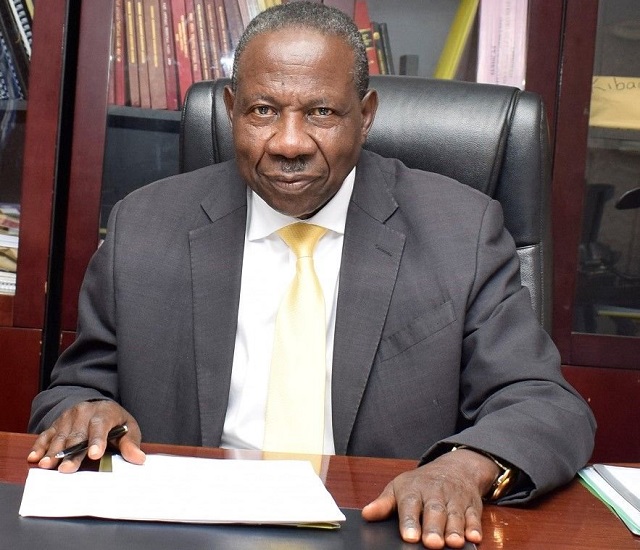
Private sector, economic experts wants government to increase the speed with tough recovery measures
Kampala, Uganda | JULIUS BUSINGE | As the economy starts to heal from the 2021 election fever, and people getting back to work, with hopes that coronavirus vaccine will get here, private sector players and experts want government to act quickly on revamping the economy.
But how do the experts want this done?
“Increased spending by economic agencies especially by government and enabling private firms to actually spend,” said Lawrence Bategeka, a senior economist in an interview with The Independent on Jan.21.
Manufacturers under their umbrella body, the Uganda Manufacturers Association wants government to engage and make it easy for them to access regional markets, cut energy prices, and offer tax and credit incentives for them to get back to the positive growth curve.
These measures would support growth of business and create jobs and related opportunities.
Bategeka insisted, any measures being thought about must be implemented quickly.
The economy was last year hit hard by nationwide lockdown related to COVID-19, with official figures indicating a decline in GDP from 5.6% in FY2018/2019 to below 3%.
Bank of Uganda projections are that the economy will progressively recover and grow above the 3% mark, supported by a rebound in both foreign and domestic demand.
Movements in the exchange rate, private sector lending, and inflation too are expected to determine performance of the economy in 2012 and beyond.
But Bategeka investors became cagy, banks were risk averse because of the associated risk of lending, because of the elections, COVID-19 was a shock which affected production both agricultural and industrial, markets shrunk both local and external.
Way forward: stimulation of demand across sectors which entails carefully handling private sector firms – the taxation should not kill off these players – it is a dilemma.
Carefully spending by all players including government (the biggest player) should be targeted towards productive sectors like agriculture, industrial production.
We need to cut down on wasteful expenditures, check on corruption with serious commitments so that the little money there is goes to impact on social services.
Once production and productivity are addressed and also demand – people do not have money which is partly why inflation is low. A deliberate effort must be made to make them buy. Banks should be encouraged to lend through reducing government borrowing. Government can borrow more externally and less from the domestic market; the interest rate that banks borrow from the central bank could also be reduced for banks to access more funds; even if it means relaxing the regulatory measures including even the capital requirement it should be done at least for a while.
“This is the time for spending more,” he said.
“These measures should be dealt with decisively,” he adds. It calls for enlightenment – bring down the price of electricity and these should be quickened. We pray that COVID-19 situation is contained.
In the medium and long terms scale, the government should be thinking of really increasing its import-exports tremendously – in coffee, tea, cereals. The other way is to cut on public administration costs by reducing the number of ministers. “…because now I can’t say he can reduce Parliament…that is already with us for the next five years” But something must be done to merge parallel structures of government (ministries and the authority)…we should use government money more efficiently to improve productivity and the welfare of the people.
The ‘emyooga’ programme that is about helping the people the way they are may not achieve much results because a robust economy needs the human resource where it competes most to make money most for the country.
Everest Kayondo, the Chairman of KACITA told the Independent that his group has little hope for now. For instance, he said China wants those without direct flights to China they want them to be tested twice in Uganda and another while in transit. There is also quarantine…so traders are not moving to China. China is interested in those returning home. It is not yet open.
Traders are currently importing through the internet but are making small orders because demand is still low and it is costly because they are buying through a third party. “We are not fully operational,” Kayondo said.
Tourism would be another sector to accelerate economic growth at this time – Kayondo said most countries are still under some lockdown and some Airlines have not reopened certain routes because not many people are travelling. Domestic tourism would be another good target. But Kayondo said, domestic tourism has its limitations because people are constrained and do not have money to spend.
“So we are still on a downward curve,” he said.
In terms of borrowing, even under the low interest rate regime at the Uganda Development Bank, Kayondo said, this is another joke. “You go through UDB which is a bank and you think you are recovering when business is low.”
Slower credit growth in all sectors except personal loans & household loans.
Lowest growth was in trade and manufacturing, with the sectors averaging 0.7% and 0.4% in the Q-Oct’20 respectively owing to a slowdown in economic activity.
Growth in credit to the services sector (consumer facing services, tourism and others) that has adversely been affected by COVID-19 response is showing signs of recovery.
****
The post Increase spending to revive economy, private sector players urge government appeared first on The Independent Uganda:.
from The Independent Uganda: https://ift.tt/36gvn2j
0 Comments